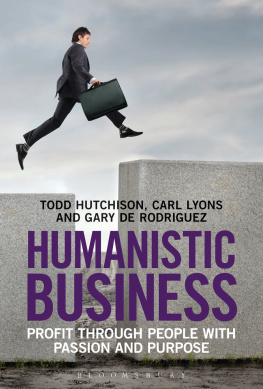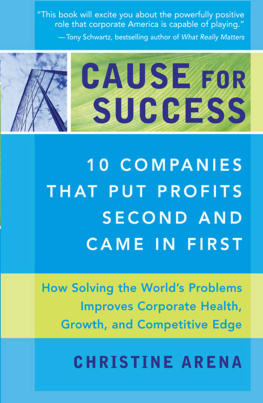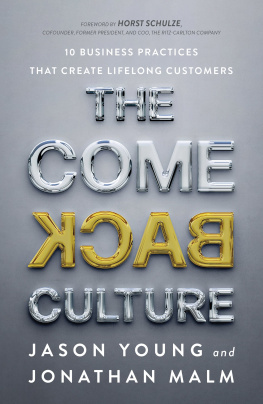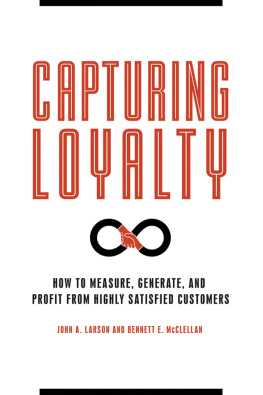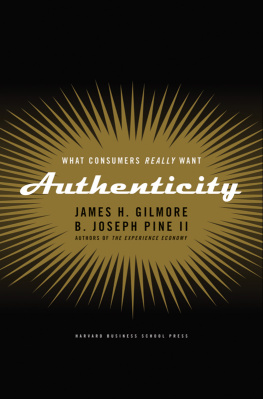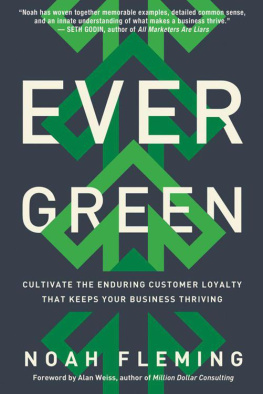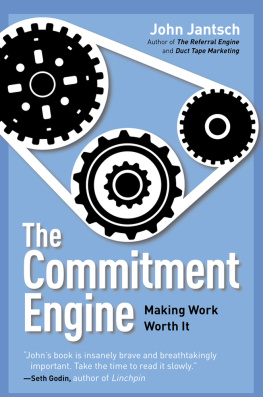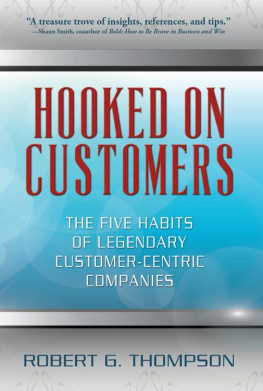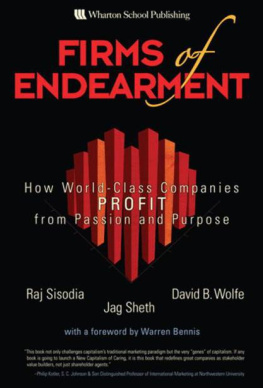Todd Hutchison
I would like to acknowledge Jukka Sappinen from Extended DISC for the use of images in this book showing his amazing and world-leading behavioural system. I would also like to recognise the great teachers who have touched me the most: Anthony Robbins, Brian Tracey, Robert Kiyosaki, Dr Wayne Dwyer, Dr Joe Dispenza and the late Jim Rohn. Lastly, those most important angels that touch my life and give me daily inspiration: my mother Dalveen, wife Gina and daughter Lara. We are all shaped by those who leave footprints on our hearts, and changed forever more.
Carl Lyons
I would like to thank my wife, Michele, for her love and support during the writing of this book. Our three beautiful daughters, Lily, Poppy and Rose, are my constant inspiration and who will occupy that future we hope to shape for the better.
Gary De Rodriguez
I would like to acknowledge Raj Sisodia for his contribution to Conscious Capitalism, as well as Robert Dilts, John Overdurf, Connie Ray Andreas and Julie Silverthorn who wielded the tools of NLP with such grace it inspired me to dive deeper into the business application of the science of human excellence. Peter Senge for his work in systems thinking. Edward De Bono for his simple and effective methods to increase perspective and flexibility in thinking. To Robert Sargeleski for his unwavering support of my career and his belief in me as a man, but most importantly for his ability to help me stay in the infinite NOW laughing.
OVERVIEW
Business is all about people, and positive and productive relationships.
Business operates within lifecycles.
Identifying and defining the seven key elements of a humanistic business.
Gaining insights into the ultimate goal of operating a humanistic business.
Business is all about people and relationships. The combination of great people working under a loved brand name creates a synergy that is exciting to the marketplace. How a business and its team members engage, interact, communicate and influence people has a direct bearing on the potential for prospects to become clients, and clients to become long-term customers. People want to be engaged meaningfully, build relationships, be respected and to do and achieve things that make them feel great. They want to spend time with people who make them feel important and valued.
Business conducted through relationships of trust is a proven concept that goes back to when business first began. In todays fast-paced world, with limitless information, products and businesses to choose from, having the best product is no longer enough to assure success. Many inventors of the worlds best products are broke, and most of those products are not the bestsellers in the marketplace.
Being the first to the market is not necessarily the answer either, as research and development absorbs money with no guarantee of a return on investment. True technology innovation now has a short market lifespan before it is no longer new, and many businesses are just waiting to copy it in order to enter the newly proven market early and capture it at a lower entry cost. They are, rightly or wrongly, interpreting R&D as Rip-off and Duplicate. Some say that is smart business. The truth is, products and services can be copied by any competitor in a very short time, and often at a lower cost. The differentiation must go beyond just the products and services to the unique brand distinction.
Although the quality and uniqueness of those products and services can contribute to the market value proposition, they are not the sole answer. The answer comes down to why consumers select one business or product over another. Sometimes it is location, stock availability, price or convenience, but they still prefer to transact with businesses that are friendly, consistent, predictable, stable and who can deliver on their promises. People simply want to do business with people they know, like and trust. While recognising that the success of a business is linked to their profile, their marketing and who is talking about them, the like and trust comes from a very personal connection.
We have identified seven core principles below that underpin the seven elements of the humanistic business model above; those of purpose, talent, values, vision, products, strategy and delivery. We believe that these principles are the key differentiators between businesses that are just doing well, and those that could be identified as humanistic businesses.
People prefer to do business with people who act with integrity.
Personal responsibility enables positive relationships.
People strive for repeatable positive experiences.
Enthused advocates energise market interest.
Strong positive brand energy attracts people.
Steady organic growth leads to sustainability.
Socially responsible interactions are good for business.
When these principles were recognised, applied, validated and confirmed, it became evident that the core aim of a business was to focus on team performance, using the humanistic business philosophy and approach. The highest-performing sustainable teams were somehow embedded with these principles, and living them. Those businesses had become humanistic through their teams.
People prefer to do business with people who act with integrity
Actions that represent integrity are demonstrated by an inner sense which enables people to like and trust others. The businesses that are loved add value, as they touch the human emotions in a way that makes people feel good. Those businesses are the ones people like to deal with, talk about, promote and recommend to others. These businesses recognise the importance of human relationships, of having fun and serving others as the only authentic way of doing business.
This is why operating as a humanistic business is critical during hard economic times, as well as sensible business practice during good times. Humanistic businesses attract loyal customers, service-focused suppliers and committed staff. This emotional connection to a business helps sustain it, allowing it to generate more referral business and greater profits, and this results in increased staff retention and a happier and more productive work environment. Neuroscience is now proving that the brain is all about connecting and cell communities, and this is a micro view of the society we live in. Even todays online technologies are about liking people, joining groups and connecting.
In an increasingly interdependent world, networks are becoming an important way of connecting with others and doing business. The greater accessibility and transparency that goes with this means that those who contribute positively to the group get referred on, while those who dont often face potential exclusion. Exposure and accessibility have always been important in business, but the means for creating them have never been so numerous or fast. People have to be in the game to play it. Being the best at something is not good enough. One can be the best inventor or the most talented in a given field, but if no one knows about you, being the best becomes a wasted resource.
Human beings are highly suggestible and whether we like it or not, other people have a great influence on the way we think and behave. Its said that people are reflections of the books they read and the people they surround themselves with. Being surrounded by positive, enthusiastic people will inspire us, challenge us and support our growth, enriching our lives. The essence of an authentic relationship is one where all parties take responsibility for their actions and obligations and understand the impact upon those around them. Relationships are not a one-way commitment. This is reflected in the second principle of humanistic business:
Personal responsibility enables positive relationships
Next page
